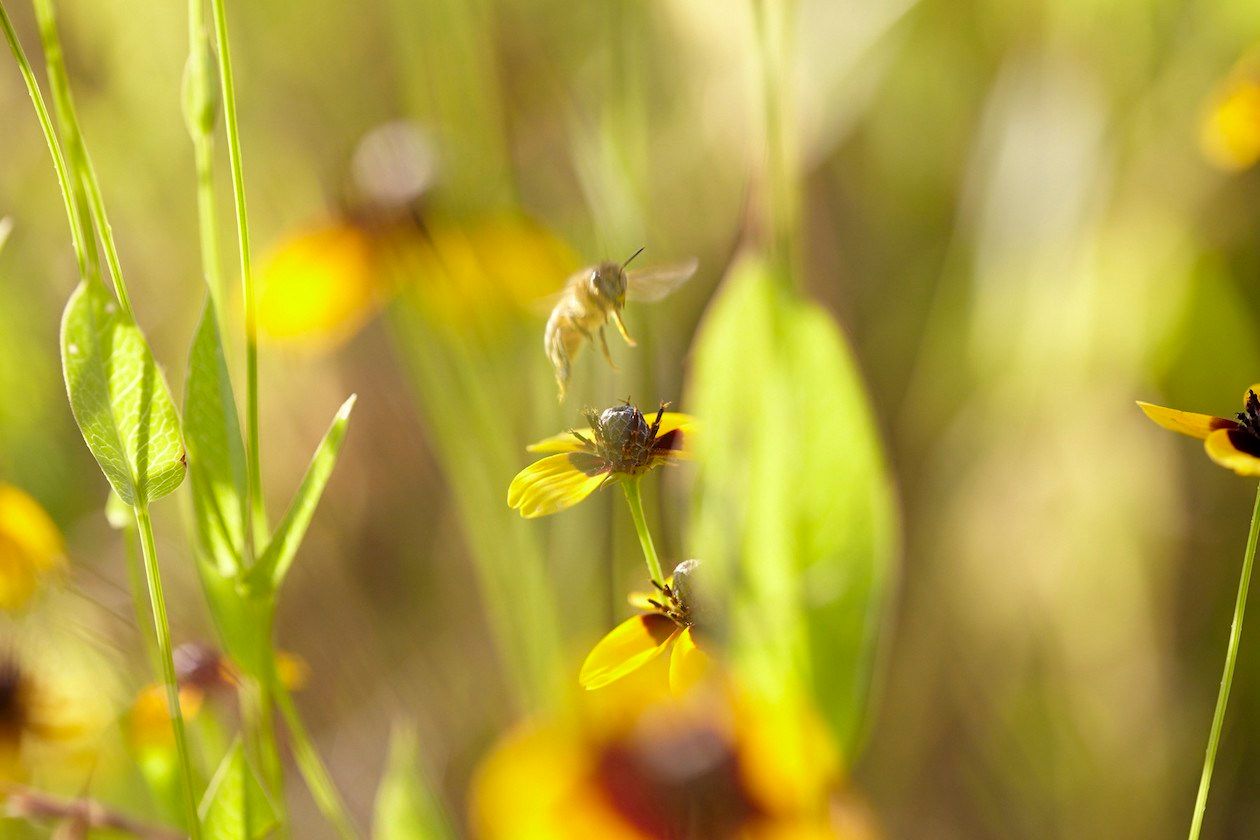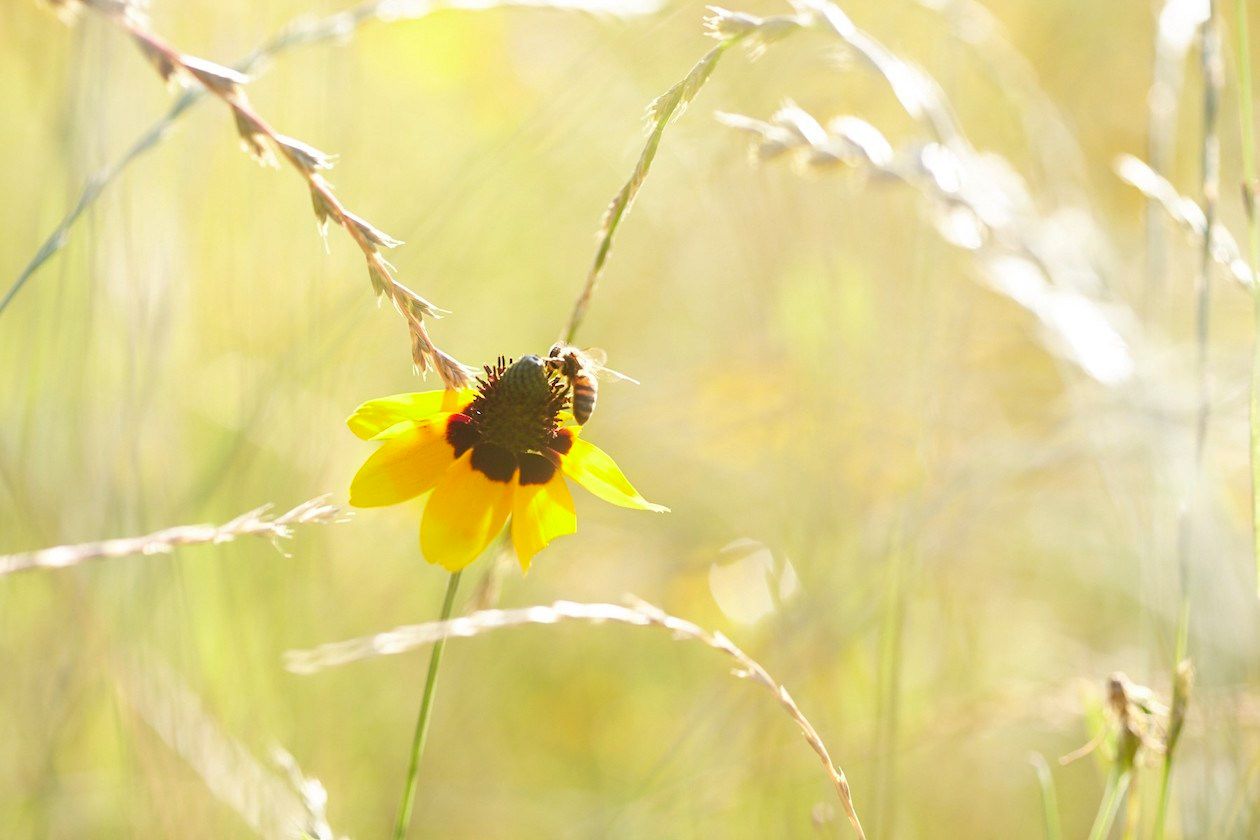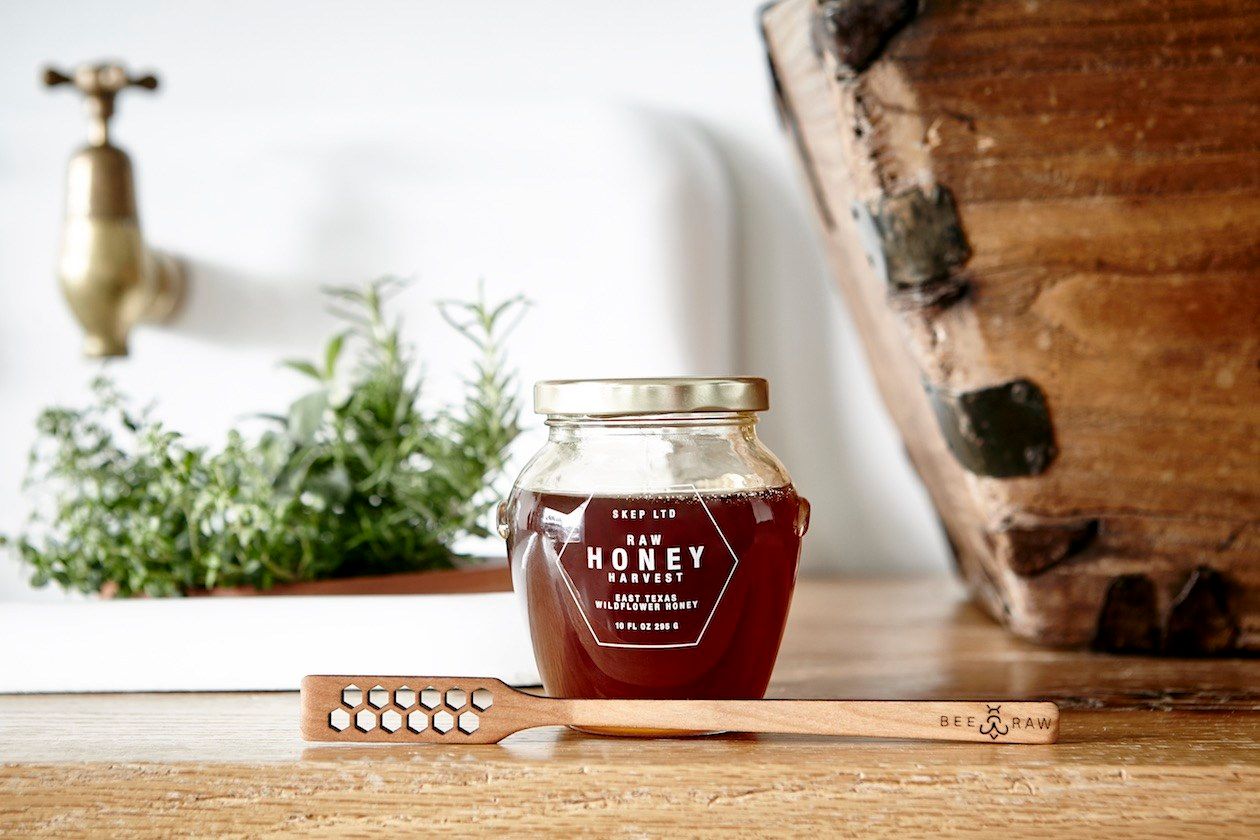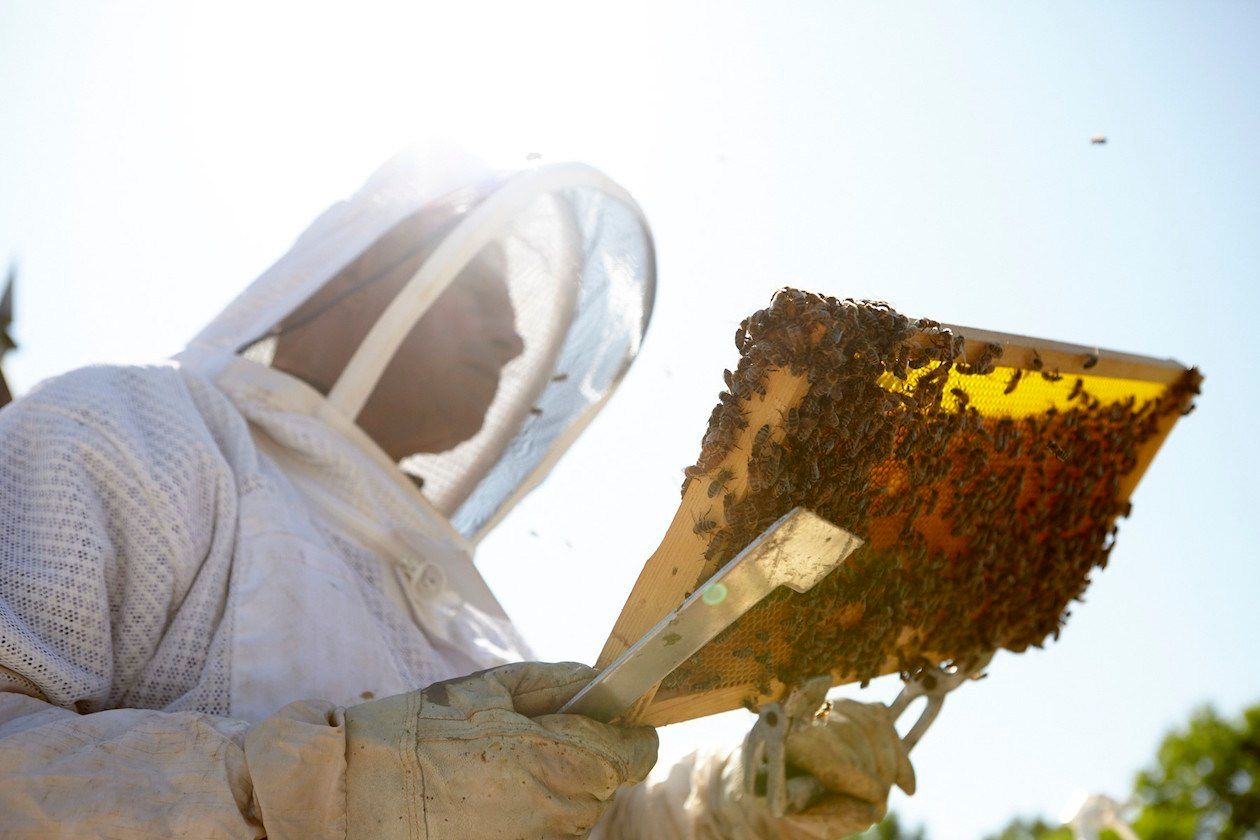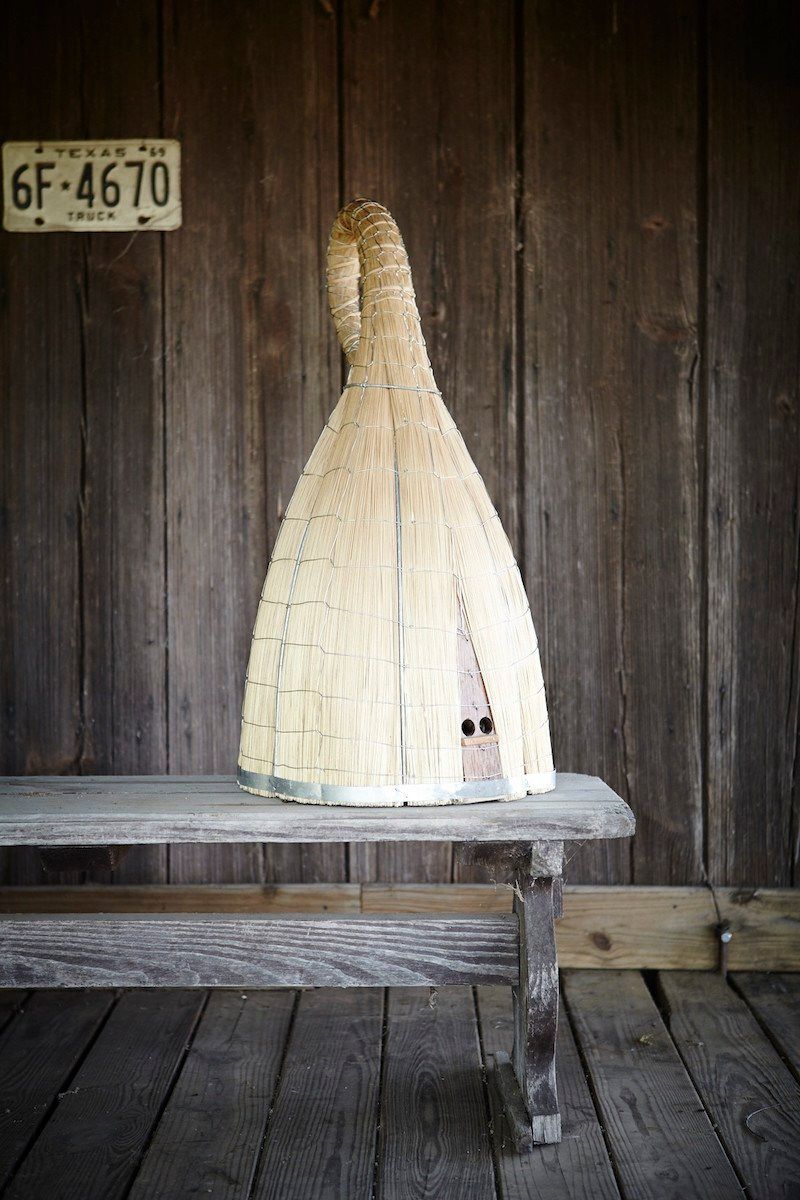“When you have the knowledge of how honey is produced and where the bees are going for the nectar you begin to develop taste buds to identify the different flavors. Much like a wine grower with the varieties of grapes, you begin to understand and identify the different flavor profiles in the honey as you’re eating it.” Les Jeske, Skep Beekeeper.
Skep Limited: Raw East Texas Wildflower Honey
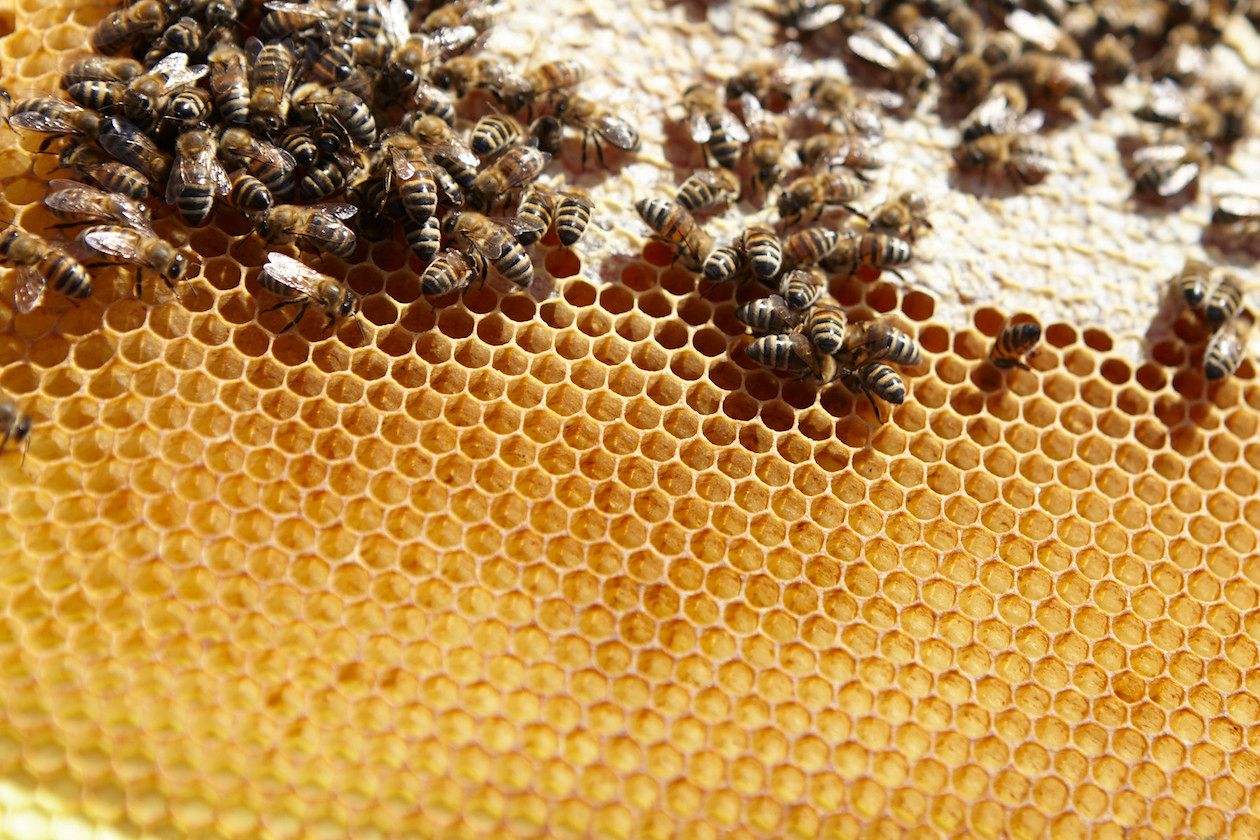
Summer is in full swing at McNair Farm, home to Skep Limited Honey, and the bees are hard at work among the wildflowers and fruit bushes that surround the farm. Alongside the giant oak trees, lake and a historic jailhouse that dates back to 1873, the fields are vast and full of rosemary, lavender, clover, blackberry, blueberry, peach, Indian paintbrush, winecup, bishop’s flower and other types of common Texan flowers for bees to forage.
Par Bengtsson and Randy Price traveled to Athens, TX to visit McNair Farm and meet with the producers behind the delicious Skep Ltd Raw Wildflower Honey, photographing the mesmerizing journey from field to honeycomb and how the honeybee captures the terroir of Texas in each jar of honey. With each harvest, the flavors in Skep honey will vary depending on the wildflowers in season. Skep Limited Honey is made up of a group of enthusiasts from the East Texas Beekeepers Association, where people of all ages and levels of experience share their knowledge of how to look after their bees and harvest honey sustainably. One of the key principles of their ethos is to extract the hives only once a year so as to not to rob the hives of their food source for winter.
The Skep beekeepers believe that honey should be raw to preserve the delicate flavor profile and beneficial enzymes. Commercial, mass scale honey producers filter and temperature treat honey to remove pollen and visible impurities, which also ends up removing the naturally nutritious properties. Commercial honey is blended together from a variety of unknown sources.Known as honey laundering, the nameless blend will be diluted with sugar or high fructose corn syrup resulting in a watered down, sugary taste.
As keeper, Les Jeske highlights, once you appreciate the journey the bees make for their honey you will want to enjoy it as nature intended.
We enjoy ours drizzled on ricotta toast or roasted with feta and thyme, each bite reminding us of Texas fields in the summertime.
